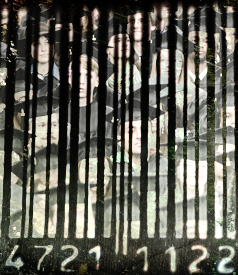by: Michael Winship, t r u t h o u t
"Then again today back to the square to find that the number of those who support the uprising is increasing tremendously. The charm of the Tahrir Square is attracting more and more people; some flew all the way from the United States, Canada, Germany, London and even South Africa to be there in the square at this very moment of ultimate hope. Others are coming from different Egyptian governorates, simple people who came a long way because they believe that this is a true revolution fighting for their rights and they were determined to give it all their support.
"One very simple lady from the rural Fayoum governorate told me, 'I am here to support the youth,' and added, 'When Mubarak's grandson died we all felt for him, we dressed in black and cried for the innocent child, why on earth is he now doing this to our sons? How many mothers are now crying for a child who is dead or lost?'
"Many analysts in the media speak of Egypt's economy, they say that the economic growth did not trickle down to the poor and this is why this is happening. This is too simplistic. This revolution is not about poverty or need. The people in the streets from all walks of life, rich and poor are there because they want freedom, freedom, freedom, freedom ...
"In the media they speak of an international community afraid of a power vacuum, they speak of a fear from Islamic radicalism. Others speak of the absence of the building blocks of democracy. This is exactly because they do not understand the nature of this revolution. The people, literally for the first time in history, are taking the lead and deciding for themselves. The government will continue to make its concessions and offers, and the street is the judge. It is a different process where the voting is a continuous process, as the street reacts to the government announcements and measures.
"The absence of a person or a group of persons as a recognizable leadership group or figures is intentional. The intellectual young people who started all this are actually leading by spreading awareness among the people in the square rather than by giving orders, and this is making the pressure of the street crowds even more forceful, simply because it is the people rather than this or that specific name who [are] reacting and deciding ...
"The people need a guarantee that whoever rules will at the end of the day, month, year go back to his home knowing that his initial identity is [as] an Egyptian citizen and not an everlasting ruler. Up till now the Egyptian government failed the transparency exam, trying hard to hide what is happening in the square from the eyes of the world ...
"The story of the Tahrir Square is not about who is with Mubarak and who is against; it is about a truly civilized, very peaceful people who decided to regain control of their destiny ... They will forever be responsible and work to rebuild the whole country."
An Egyptian Voice of Democracy Says, Tell Old Pharaoh, Go





